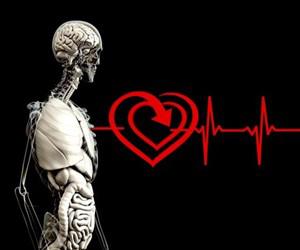
What is Atrial Fibrillation?
Atrial Fibrillation, or AFib, is a type of arrhythmia, or abnormal heart rhythm. It’s defined by an irregular heartbeat that prevents the upper chambers of the heart from contracting at a normal pace. When a person with a normal heartbeat is at rest, the upper chamber contracts around 60-80 times per minute. With AFib, however, the upper chambers of the heart can flutter as much as 300 to 600 times per minute.
The risk for stroke increases with AFib because, if a blood clot forms in the upper chamber of the heart, it can quickly be pumped directly to the brain, leading to a stroke.
4 important symptoms you shouldn’t ignore
If you experience any of these symptoms collectively and/or often, it’s time to talk to your doctor.
- Trouble breathing – when you’re having a hard time catching your breath, or you have to take deep breaths frequently.
- Dizziness – when you feel like you could lose your balance at any time, or if the room you’re in feels like it’s spinning.
- Heart palpitations – when your heart feels like it’s fluttering or flopping in your chest.
- Fatigue – when you experience low energy and/or general malaise.
How to manage AFib or prevent it altogether
If you’ve been diagnosed with AFib or have a higher risk of developing it, there are plenty of treatment options available to help reduce the symptoms and keep you feeling healthy. Make sure to talk with your doctor about finding the best AFib management plan for you.
- Focus on your fridge.
- Take stock of the food you’re eating and start shifting to heart-healthy options, like seafood, nuts, oats, berries, and cruciferous veggies such as broccoli, cauliflower & cabbage. Even focusing on a specific type of diet, like Mediterranean, can be helpful.
- Get movin’!
- Light yoga or weight training can do wonders for your heart. And don’t forget your cardio! Try doing up to 20 minutes of aerobic exercise for 4-5 days each week.
- Start monitoring your blood pressure (we can check this for you!)
- The most common cause of atrial fibrillation is uncontrolled high blood pressure and heart disease, so routine monitoring at will definitely help keep your heart health top-of-mind.
- A prescription treatment may alleviate symptoms.
- For patients at a higher risk of complications due to AFib, beta-blockers or oral blood thinners may be prescribed to slow down your heart rate and prevent stroke risk.
Consult your doctor if you think you’re at risk for AFib.
Remember: AFib is treatable. If you take the proper steps to manage your symptoms and reduce complications with your doctor’s help, you can lead a normal, happy, healthy life.
